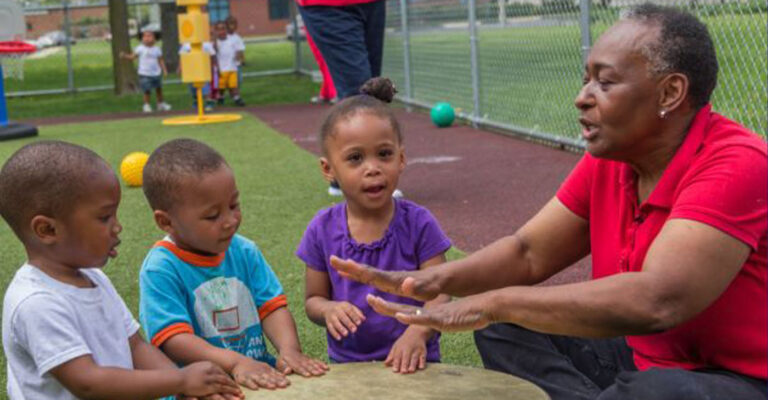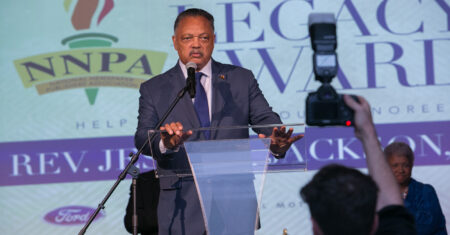By Head Start, U.S. Department of Health and Human Services
Hearing is one of the first senses to develop — babies are listening to and learning from their birth parents before they are born! Once children are born, music and singing have important impacts on their early development. It supports brain development and skills across multiple Early Learning Outcomes Framework (ELOF) domains.
What does research say?
Music is universal across languages and cultures.
Parents and other adults regularly sing to their babies. They sing for many reasons — to soothe their babies, entertain them, lull them to sleep, and help them wait or transition to the next activity.
Singing engages infants more effectively than just speech.
When we sing to babies, we often use facial expressions, exaggerate words and sounds, and use playful movements and gestures. This special combination of communication methods provides babies with rich social-communicative information. The rhythmic patterns and predictability help give infants important communication cues.
Singing with babies promotes bonding and reduces stress.
When singing with babies, parents and other adults pay close attention to the baby’s cues and adjust their singing to match the baby’s needs. These interactions provide a powerful opportunity for bonding between the baby and the adult. Singing to infants reduces the infant’s distress and increases their emotional regulation more than just speech. Singing also benefits the adult by reducing stress and anxiety, increasing feelings of well-being and self-esteem, and promoting feelings of closeness with their baby.
Singing with infants supports learning across many developmental areas.
Research shows that singing increases emotional regulation, social skills like prosocial behavior, and language learning. Using instruments like shakers and bells helps young children build fine and gross motor skills as they move and make music along to the beat. Listening to music and moving to the beat helps young babies learn to recognize patterns in music and language. Singing songs with rhymes, numbers, and patterns supports older infants’ and toddlers’ cognitive development, including memory, sequencing, and storytelling.
Connecting at Home
Singing with your young child can improve their focus, communication, emotional regulation, social, cognitive, and physical skills. It can also help you feel calmer and more connected to your infant.
Word Swap
If you aren’t sure what to sing to your baby, try using a song you and your baby already enjoy, and change the words to adapt to
different situations. Like singing, “Ba ba bottle, it’s time to eat” to the tune of “Baa Baa Black Sheep.”
Bounce to the Beat
When singing or listening to music together, bounce your baby in your lap or pat them to the rhythm of the music. This helps young infants become familiar with musical rhythms before they are able to move their bodies independently.
Follow the Leader
When singing your young child’s favorite song, pause, wait, and look for them to fill in the next word or movement. These back-and-forth interactions support social connections, language, memory, and sequencing skills.
Hear Me Out
Learn songs that include feelings and emotional words along with matching facial expressions and body language. Combining singing with language and emotional expression helps young children understand their own emotions as well as the emotions of others. Even if they’re not talking about feelings yet, singing is a great way to calm them when upset.







